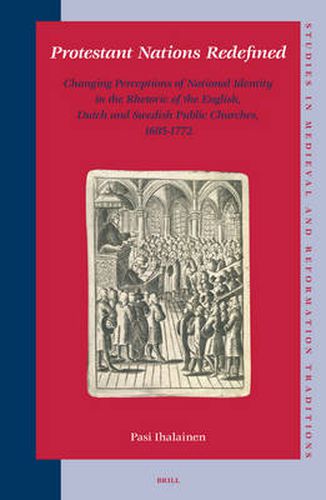Readings Newsletter
Become a Readings Member to make your shopping experience even easier.
Sign in or sign up for free!
You’re not far away from qualifying for FREE standard shipping within Australia
You’ve qualified for FREE standard shipping within Australia
The cart is loading…






This volume reconstructs the various meanings attached to the concepts of nation and fatherland in eighteenth-century English, Dutch and Swedish political preaching. After discussing sermons as a medium of national ideology, it analyses the decline of the Israelite prototype of nation, the changing relationship between religious and national communities, international Protestantism, the weakening stereotype of popery, redefinitions of the Protestant monarchy, and the diversification of national vocabulary. It also compares the rise of non-theological languages of classical patriotism, freedom, economy and nature in three political cultures, revealing how the secular worship of nation arose even within the public presentation of religion. As post-nationalist comparative history, this study will be welcomed by readers with varied national and scholarly backgrounds interested in the Enlightenment and nationalism.
$9.00 standard shipping within Australia
FREE standard shipping within Australia for orders over $100.00
Express & International shipping calculated at checkout
This volume reconstructs the various meanings attached to the concepts of nation and fatherland in eighteenth-century English, Dutch and Swedish political preaching. After discussing sermons as a medium of national ideology, it analyses the decline of the Israelite prototype of nation, the changing relationship between religious and national communities, international Protestantism, the weakening stereotype of popery, redefinitions of the Protestant monarchy, and the diversification of national vocabulary. It also compares the rise of non-theological languages of classical patriotism, freedom, economy and nature in three political cultures, revealing how the secular worship of nation arose even within the public presentation of religion. As post-nationalist comparative history, this study will be welcomed by readers with varied national and scholarly backgrounds interested in the Enlightenment and nationalism.